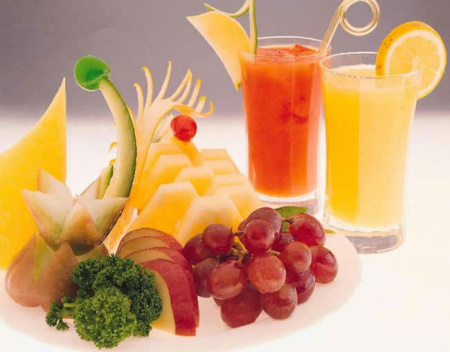Products List
Contact Us
News
Juice Products Association promotes 100 percent juice |
| Author: Date:6/7/2014 11:31:04 PM |
 Juice Products Association promotes 100 percent juice The Juice Products Association (JPA) released a statement in January highlighting the nutritional benefits of 100 percent juice. “Can something that tastes as good as 100 percent fruit juice be good for you? Research shows it is,” the statement read. “More than just sugar and calories — 100 percent juice is a healthful, nutrient-dense beverage. It also contains beneficial vitamins, minerals and phytonutrients (plant compounds).” The association’s statement also includes a number of cited references relating to health-related concerns about 100 percent juice. The statement follows recent attention of “Fed Up,” a film by Stephanie Soechtig that premiered at the 2014 Sundance Film Festival. Narrated by Executive Producer Katie Couric, the film examines media attention and government policies to combat childhood obesity. In a YouTube video with Bring Your Own Doc, Soechtig raises questions about sugar consumption and correlates it with juice consumption in that interview. Couric also has discussed this topic on her daytime talk show, “Katie.” In addition to the JPA, beverage ingredient suppliers are spreading the message about the benefits of 100 percent juice. “Some of the cleanest, least-processed packaged foods on the market are 100 percent juice products,” said Gert van Manen, president of iTi Tropicals Inc., in a statement. “Compare the ingredients in a 100 percent juice beverage to just about any other beverage, and most will have added sugar, many with unpronounceable ingredients. If ‘clean label' is a trend with consumers, then 100 percent juices can capitalize on this. Currently, the focus is on the amount of calories in 100 percent fruit juices, so address this and reduce the calories while maintaining 100 percent juice. It is our challenge and goal to educate and provide the tools to develop 100 percent juice products that are consumer-preferred alternatives to sugary drinks.” The company also highlights the benefits of coconut water for the juice industry, noting that an 8-ounce serving of coconut water contains approximately 36 calories compared with 140 for grape, 113 for orange, and 150 for pomegranate. Van Manen also expresses qualms about the concerns that are being communicated relating to the naturally occurring sugars found in juice. “I don't quite understand how the juice business is under attack for naturally occurring sugars," van Manen said. "When you eat beets, carrots or even broccoli, you consume naturally occurring sugars. Sure, some of the juices on the market have little fiber, but many purees we carry, such as banana puree, are an excellent source of fiber. Nothing has been removed — just the peel. “All smoothies have banana puree added to provide viscosity,” he continued. “Sometimes satiety is a problem for high-viscosity beverages. Consumers are left with the feeling of being too full or having consumed too much. Coconut water can be used to reduce thickness of highly viscous purees and yogurts. Reducing viscosity using coconut water allows you to formulate a product that's 100 percent juice, while using water as a diluent reduces the juice content proportionally. And, being relatively bland, coconut water does not interfere with other flavors. Capitalize on the clean label, nutritional values, [and] flavor and reduce the calories. What beverage could compete with such stellar, clean and healthy attributes?” Related juice product: www.sunstarmachine.com/html_products/Bottled-Juice-Tea-Beverage-Filling-And-Packing-Machine-(RCGF40-40-12)-455.html |






